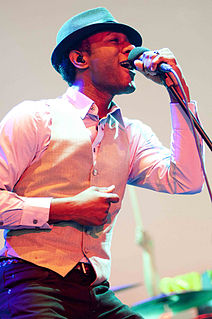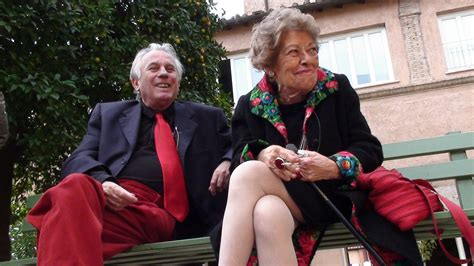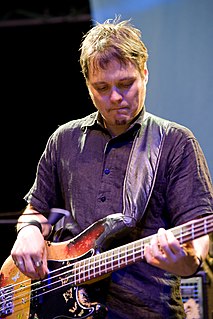A Quote by Aloe Blacc
We live in an era of consumerism and it's all about desire-based consumerism and it has nothing to do with things we actually need.
Related Quotes
We live in an era of consumerism and it's all about desire - based consumerism and it has nothing to do with things we actually need. What do you actually need? Food, clothing and shelter. Everything else is entertainment. It's just the idea that we're so wasteful. I think a lot of self - identity and inner - personal development is hampered by consumerism and capitalism because we see ourselves as a reflection of the TV, rather than as a reflection of the people who are around us, truly.
...There is no end to the making and selling of things there is no end to the making and selling of things there is no end... Man, it occurs to me, is a joyful, buying-and-selling piece of work. I have been wrong, dead wrong, when I've decried consumerism. Consumerism is what we are. It is, in a sense, a holy impulse. A human being is someone who joyfully goes in pursuit of things, brings them home, then immediately starts planning how to get more.
Consumerism is, quite precisely, the consuming of life by the things consumed. It is living in a manner that is measured by having rather than being... and consumerism is hardly the sin of the rich. The poor, driven by discontent and envy, may be as consumed by what they do not have as the rich are consumed by what they do have. The question is not, certainly not most importantly, a question about economics. It is first and foremost a cultural and moral problem requiring a cultural and moral remedy.
Our consumer economy peddles the notions "romantic consumerism" of finding "the one," of being the one. It's the narcissistic enhancement of, "I'm the one you stopped your nomadic life for." It's one thing when you have sex for the first time when you marry, but it's another thing altogether when you stop having sex with others when you marry. So the marital commitment becomes, "I must be really special. With me, you no longer think you can find better next door." Romantic consumerism is thinking you can't find better, younger or newer.
It's no surprise that if you look at the development of the economy, of consumerism, of all these things that have gotten out of hand over the last hundred years, it happened when men were purposeless, when they didn't actually have a legitimate reason to be moving the species forward because the machines were doing all the hard work.



































